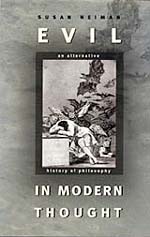Point Austin: Abandoning Illusions
Chris Hedges on the inevitable consequences of empire
By Michael King, Fri., Nov. 6, 2009

In this context, the Sunday visit of writer Chris Hedges should certainly bring at least a breath of rational air. Hedges is the Pulitzer Prize-winning author of War Is a Force That Gives Us Meaning (2002) and formerly an international war correspondent of two decades who does not speak of it casually: "The rush of battle is a potent and often lethal addiction, for war is a drug, one I ingested for many years." Beyond his reporting and writing, Hedges is publicly best known for having left his job at The New York Times after he was reprimanded for telling a 2003 college graduating class, concerning the war in Iraq, "We are embarking on an occupation that, if history is any guide, will be as damaging to our souls as it will be to our prestige, power, and security." ("Attempting to tell" is perhaps more precise – Hedges was shouted down by an audience then engorged in American triumphalism; one wonders what the response might be nearly eight years of war later.)
The editors apparently thought that allowing reporters to reflect on the inevitable effects of empire jeopardized the Times' reputation for objectivity; meanwhile, much of the rest of the paper continued to act as a sober conduit for Pentagon propaganda. At any rate, Hedges spoke out against the invasion when it mattered, and at confirmed professional risk. He is now a senior fellow at the Nation Institute and writes an online column for Truthdig.com. Judging from his lead this week, it's not likely to appear as a Statesman op-ed: "The warlords we champion in Afghanistan are as venal, as opposed to the rights of women and basic democratic freedoms, and as heavily involved in opium trafficking as the Taliban. The moral lines we draw between us and our adversaries are fictional."
An Empty Shell
Hedges' latest book, published earlier this year, is Empire of Illusion: The End of Literacy and the Triumph of Spectacle. At a couple hundred pages, it's not an imposing read, but it's a somewhat grueling one. The book is a sustained polemic against what Hedges sees as the hollow state of contemporary American culture, from popular entertainments to increasingly corporatized higher education to commercialized positive thinking, all as symptoms of a larger social malaise most fully realized in outright militarism and permanent warfare. In each chapter, Hedges analyzes an American public "illusion" – literacy, love, wisdom, happiness – and ends with "The Illusion of America."
"I used to live in a country called America," he writes, briefly summarizing the real virtues and undeniable faults of that historical place. But he continues: "The country I live in today uses the same civic, patriotic, and historical language to describe itself, the same symbols and iconography, the same national myths, but only the shell remains." The book argues forcibly that in recent decades, the lethal, combined ascent of megacorporate culture and endless imperial war has hollowed out both the once productive American economy and vitiated any truly effective democracy. Sobering, even overwrought as it sometimes sounds, Hedges' argument carries imposing conviction. Whatever the verdict, it's distressing to see one of our wisest public observers convinced that the America he once knew "is so diminished as to be unrecognizable."
The End of Empire
Empire of Illusion is undeniably powerful, if perhaps not entirely persuasive. (The opening chapters, for example, begin with pro wrestling and commercial pornography as supposed exemplars of the widespread decadence of popular culture. I don't think these can bear the representative weight Hedges grants them, and moreover, the educated classes are forever lamenting the febrile state of sordid melodrama and other popular fictions. The hard truth is: We ain't never been a literate country.) Via e-mail last week, I also suggested to Hedges that his polemic so scorches the common earth that he leaves little reason to indulge the hope for change he raises briefly at the book's conclusion.
He responded thoughtfully. "I do not see the end of empire as tragic. It will teach us to speak in a language other than violence and adopt a new humility. I do not see the collapse of the consumer culture as tragic. It will bring with it older values of thrift, self-sacrifice and community. The decline of empire is a decline of wealth and power, but these things do not breed either morality or compassion, indeed seek to banish both. We can become a better people if we dismantle our permanent war economy, if we learn to live in ways that protect the eco-system that sustains the human species rather than destroy it. Will our lives change? Yes, significantly, but not necessarily for the worse, indeed perhaps for the better. The tragedy of the end of empire is not its conclusion but that we are bringing so many people down with us."
Hedges will appear Sunday night, Nov. 8, at 6pm, at St. Andrew's Presbyterian Church, 14311 Wells Port Dr., west of I-35, off Wells Branch Parkway. Tickets ($11.50 to benefit the new Austin People's Community Center) are available through MonkeyWrench Books, 110 E. North Loop, 407-6925. For more info, see www.thirdcoastactivist.org/events.html. Read Hedges' speech to the May 2003 Rockwell College graduating class at www.lewrockwell.com/orig4/hedges1.html.
Got something to say on the subject? Send a letter to the editor.









